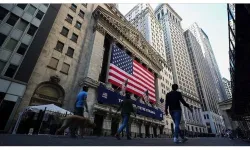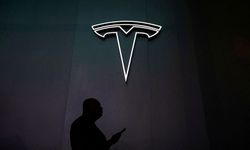EU Commission President Ursula von der Leyen announced on September 13 that a subsidy investigation has been launched into electric cars imported from China to EU countries.
Criticizing that electric cars imported from China distort the market through "large state subsidies", von der Leyen accused China of "flooding global markets with electric cars with artificially low prices in the EU through large state subsidies".
Von der Leyen noted that European companies are often excluded from some markets or face market distortions, especially where their competitors, benefiting from large public subsidies, undercut prices.
Reminding that China's unfair trade practices have negatively affected the European solar energy sector in the past, von der Leyen said that many businesses in Europe have lost their jobs due to heavily subsidized Chinese competitors.
Chinese cars are sold 20 percent cheaper
While EU electric carmakers have long demanded an investigation into Chinese imports, the inquiry in Brussels is not expected to be completed until next summer.
As a result of this investigation, it is stated that additional customs tariffs may be imposed on electric cars that receive subsidies from China and are shipped to EU countries.
While it is noteworthy that the share of Chinese manufacturers in electric cars sold in EU countries has increased in recent years, 10 percent customs duty is applied to electric vehicles coming to Europe from China. In the US, this rate is 27.5 percent.
While it is stated that Chinese electric cars are about 20 percent cheaper than the models produced in the EU, it is estimated that the market share of Chinese companies in electric cars could reach 15 percent within 2 years.
The rapid progress of Chinese car companies raises concerns in the EU, where Chinese manufacturers dominated the solar panel market about 11 years ago.
Pointing out that a possible "trade conflict" could have some disadvantages for consumers, experts emphasized that the prices of electric cars from China may increase and the pressure on European electric car manufacturers to be more efficient may decrease.
Is China violating WTO rules with its subsidies?
While China has been becoming more competitive with its strategic industrial policy since 2000, in recent years it has been pushing its electric vehicles to other markets, especially Europe, as the US market and the European market are largely blocked by tariffs.
While imports of electric cars from China into the EU have risen sharply since 2020, there are concerns in the bloc that a significant increase in imports from China will put European electric car production at a competitive disadvantage
While allegations have been made that China is violating "fair competition" on the continent, competition violations also take the form of selling Chinese vehicles below market value and subsidizing exports. World Trade Organization (WTO) rules do not allow either.
Due to the complexity of the Chinese subsidy system, it is not easy to distinguish between economically developed competitiveness and artificial competitiveness through state subsidies.
German auto industry worried
While China has shown in recent years that it is not afraid to escalate tensions in its trade war with the US, China's possible responses include additional tariffs on European products or export restrictions on electronic components important for car production.
German media reports predicted that this would likely hit German carmakers, which control a fifth of the Chinese market, hard.
While Germany has traditionally been wary of angering Beijing because of China's importance as a market for exports and a key source of commodities, the Chinese market is important for German carmakers in terms of both sales and growth.
German companies are developing and testing the latest technologies in China for the global market.
According to 2021 data, German automakers Volkswagen, Daimler and BMW generate 37.2 percent, 32.2 percent and 31.7 percent of their revenues in China, respectively, while 13 percent of the revenues of sports goods company Adidas, 13.2 percent of Siemens' revenues and 15.3 percent of chemical company BASF's revenues come from China.
In short, the majority of intermediate products used in German industry come from China.















